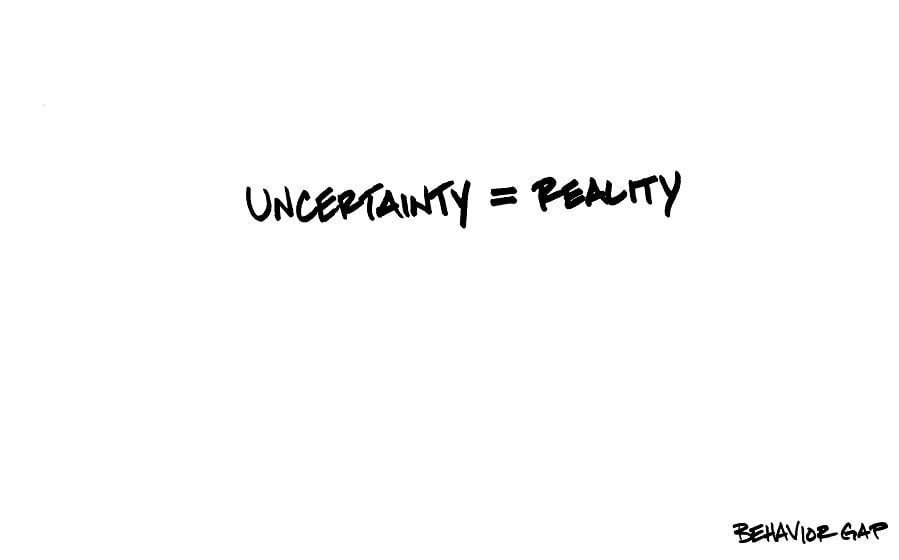After years of working with clients, I've come to realize that if you're an insecure person, no amount of money will make you feel more secure. What do I mean by that? I know many people who have more than enough money in the bank, but they're lying awake at night, convinced it could all disappear tomorrow. For people in this group, no number, no matter how big, will relieve that insecurity.
On the other side, I know plenty of people living paycheck-to-paycheck who feel financially secure. That seems like a huge contradiction. How can people feel secure with little to no money in the bank, but people with healthy balances are losing sleep?
To be clear, I'm not making a value judgment about either position. But as advisers, we need to be aware that: 1) feeling secure isn't tied to a number on a bank statement and 2) we personally can't make people feel more secure.
However, we are in a position to have conversations that help our clients focus on the things they can control to feel more secure. I know it sounds obvious, but encouraging people to pay down debt, to set up an emergency fund, and to spend a little less than they make are all things that can contribute to feeling more secure financially. Beyond that, though, we're all facing a hard reality.
Life is uncertain. People can plan and prepare for what comes next, but we need to realize that we're doing the best we can in the face of irreducible uncertainty. Once we have that baseline in place — no debt, more saving, less spending — then the conversation you have with a client might go something like this:
"The only thing we know for sure is that we'll aim to make the best decisions possible with the best information we have right now. Things will come up that we didn't expect, but I'm going to be there to help you deal with it."
Feeling secure is one of the toughest nuts to crack because it all comes back to feeling in control. And as real financial advisers, we need to fight the temptation to offer up a false sense of precision (e.g., "I'm 96.235% certain you'll be OK.") to create that sense of control.
Instead, let's be upfront with clients and help them make decisions that can lead to a greater sense of security. Sometimes the decision won't be perfect, but that's OK, because you'll be there to help them learn and make a better decision the next time — and that's what it means to be a real financial adviser.
Carl Richards is a certified financial planner and director of investor education for the BAM Alliance. He's also the author of the weekly "Sketch Guy" column at the New York Times. He published his second book, "The One-Page Financial Plan: A Simple Way to Be Smart About Your Money" (Portfolio), last year. You can email Carl here, and learn more about him and his work at BehaviorGap.com.







